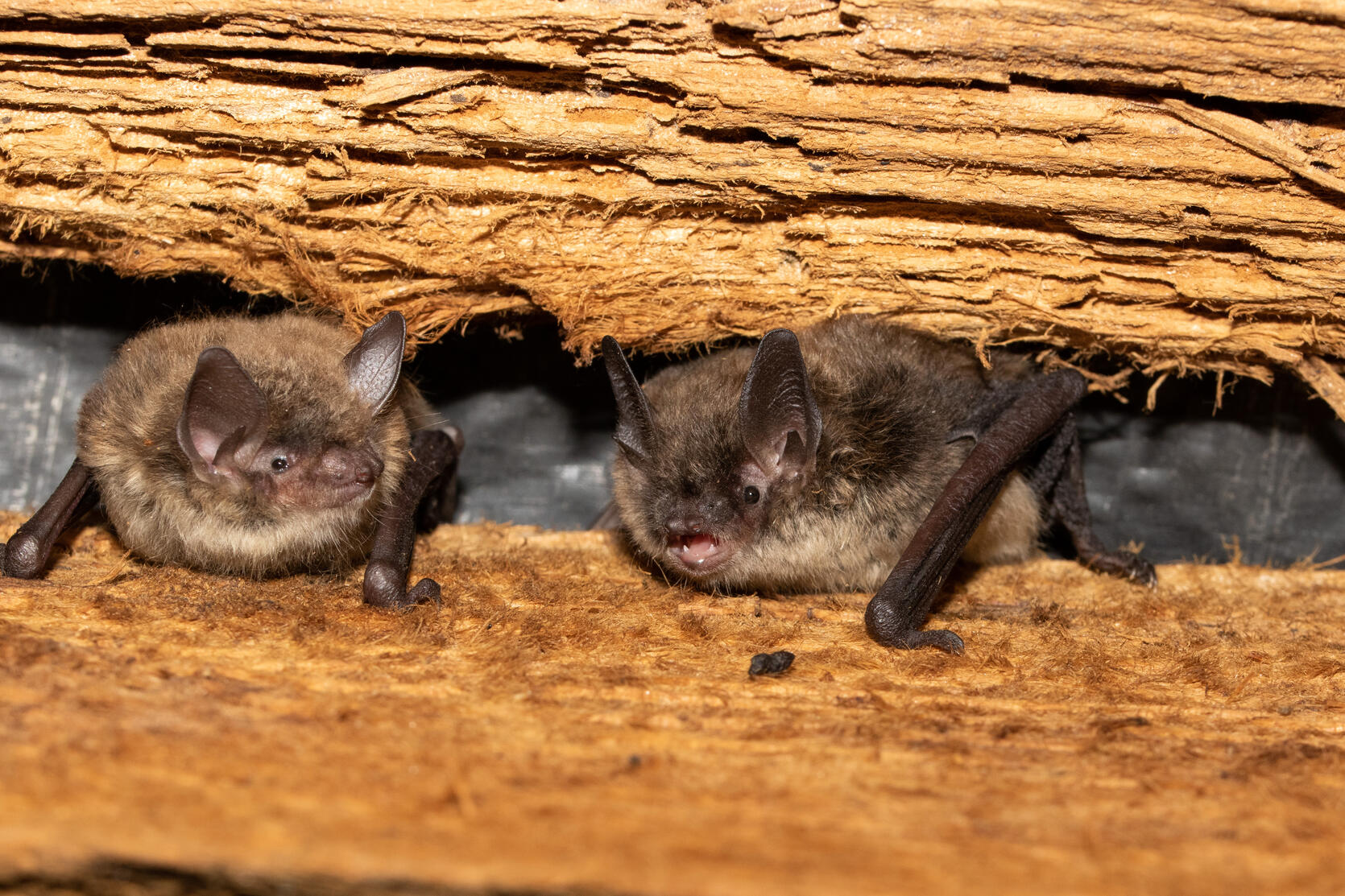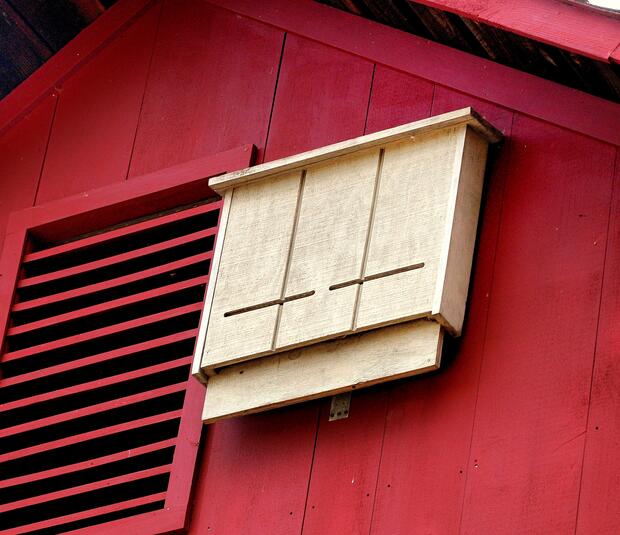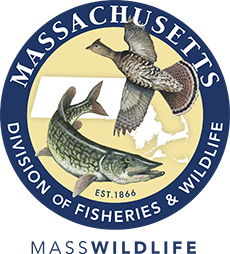- Division of Fisheries and Wildlife
- MassWildlife's Natural Heritage & Endangered Species Program
Media Contact
Media Contact, MassWildlife

Bats of Massachusetts
‘Tis the season for celebrating the flittermouse, flying fox, or most commonly known as bats! Bat week starts October 24, where bat lovers raise awareness about the need for bat conservation and to celebrate their roles in nature.
The Commonwealth is home to 9 species of bats and 8 of those are listed under the Massachusetts Endangered Species Act (MESA). Become a bat expert by learning about each bat below, going to the film showing of The Invisible Mammal in Keene (NH), Grafton (MA), or Waltham (MA), and visiting Mt. Greylock for a bat night walk with Dr. Laura Hancock, an ecology and wildlife researcher.
Big brown bat
This long, glossy, chocolate brown fur flier is the second largest bat species in Massachusetts. With a wingspan of about 1 foot wide, they enjoy swooping into the sky and eating beetles and stink bugs. Found in all throughout continental US, they are considered habitat generalists, meaning they are okay with living in a variety of urban and rural areas.
Little brown bat
Most commonly known to humans as house intruders, the little brown bat used to be one of the most abundant bat species in the northern US. White-nose syndrome, a deathly disease caused by a fungus that naturally grows in caves, has severely impacted their population numbers. Fun fact: Upon looking closely at their fur, you can see that it is two-toned, meaning that their hair is dark at the base and light at the tip.
Northern long-eared bat
At dusk, this bat uses its long ears, long tail, and large wing membrane to fly in such a methodical way that enables them to pluck prey right off of foliage in cluttered environments. Locating the resting insects require them to use a combination of passive listening and the emission of high frequency echolocation calls. They prefer roosting in clusters of large trees, bonus points if they are hardwoods with large, tall cavities!
Indiana bat
Often confused with the little brown bat, the Indiana bat is known for having a distinctive pinkish-brown color of fur that is noticeable only under good light. They are a migratory species that only hibernate in a few select caves and abandoned mines in the US. As the name suggests, majority of the hibernation locations are in Indiana and hasn’t been recorded seen in Massachusetts since 1938.
Eastern small-footed bat
The eastern small-footed bat is one of the tiniest bats in the eastern U.S., with a distinctive black "masked" face, tiny hind feet, and a flattened skull that helps it squeeze into tight rock crevices. Like other Massachusetts cave bats, mating occurs in the fall at hibernation sites, followed by a period of delayed implantation. After a 60-day implantation, a single pup is born in May or June.
Tricolored bat
Nicknamed the ‘moth bat’ due to its weak, fluttery, erratic flight, the tricolored bat often leaves the roost at the earliest in the evening to feed. They have individual hairs on their back that are tricolored; they are slate gray at the base, yellowish brown in the middle, and dark brown at the tips. They hang from walls (not ceilings!) in the warmest parts of a cave or mine where the humidity is so high that water droplets cover their fur.
Silver-haired bat
The recently listed bat species has dark blackish brown hair with silver-tipped guard hair on its back. They are the most uncommon tree bat in the state and prefer to roost in hollow trees, crevices in rocks and cliffs, and under loose bark. Like other species of bat, they are susceptible to wind turbines, a newer threat that conservationists are trying to develop a better understanding of.
Eastern red bat
Eastern red bats are sexually dimorphic, with the males displaying a bright brick red fur and the females displaying a buffy-chestnut fur. They migrate south to Florida in the winter and have been found as far offshore as 130 miles on ships at sea! Although they are traditionally known as hardwood forest-dwellers, they have been found in a wide range of habitats, including cemeteries, orchards, and edges of lakes.
Hoary bat
The hoary bat is the largest bat in Massachusetts with a wingspan of nearly 17 inches! It has striking silver-tipped fur and can fly up to 60 mph with a strong, direct flight. Since they do not emerge until well after sunset, fly high and fast, and live singly, hoary bats are not well reported. They are usually a solitary creature, only occurring together to mate and care for their young.
How you can help bats
- Educate yourself and others about bats by learning about the variety of threats they are facing in Massachusetts and across the country.
- Help provide safe, warm roosting sites for females to raise their young. Create a bat-friendly backyard by leaving old, dead, or dying trees standing to provide natural roost sites. Or, if you’re handy, learn how to build and install a bat house.
- Support bats and other rare species in Massachusetts by donating to MassWildlife’s Natural Heritage and Endangered Species Program.
- If you must exclude or evict bats from your home, ensure the process is safe and humane by following MassWildlife’s recommendations found in the Massachusetts Homeowner's Guide to Bats.
- Be a citizen scientist. If there is a colony of 10 or more bats on your property, use our online form to report it. Colonies may be found in trees, buildings, attics, barns, sheds, or other outbuildings. This information will be used to help conserve the state’s endangered population of little brown bats.


